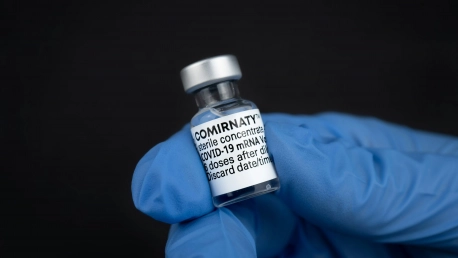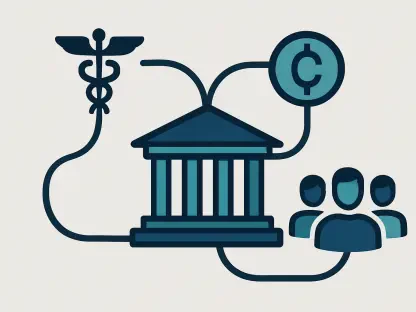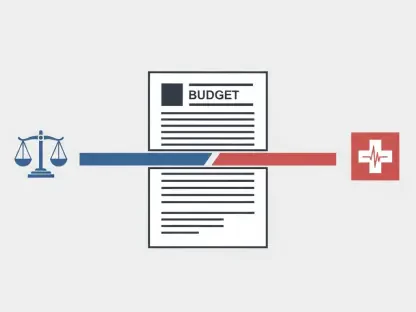The intersection of social media and pharmaceutical regulation hit a flashpoint when Pfizer, a leading company in COVID-19 vaccine development, faced repercussions for a seemingly innocuous tweet. While social networks provide a powerful platform for sharing news and advancements, they also raise significant compliance concerns within the highly regulated healthcare industry. In this intricate web of promotion and regulation, Pfizer’s step beyond the boundaries of the UK’s strict advertising laws has brought to light the complexities of modern pharmaceutical communication. The case of Pfizer’s tweet not only showcases the perils of navigating this digital realm but also sets a precedent for other industry players about the severity of repercussions for failing to adhere to the established codes of practice.
Pfizer’s Regulatory Breach: A Tweet Too Far
When Dr. Berkley Phillips, Pfizer UK’s Medical Director, shared the vaccine’s reported 95% effectiveness on his personal Twitter account, the PMCPA was quick to react. Their investigation immediately flagged the promotion of an unlicensed medication, as the vaccine had not yet completed the regulatory approval process. This breach was not taken lightly; unauthorized promotion can lead to misinformation and potentially misplaced trust by the public in medical products that have not undergone complete review. The PMCPA’s censure was a clear message to the pharmaceutical industry: even indirect and seemingly informal communications by corporate executives are subject to regulation.
The Ripple Effect of Pfizer’s Social Media Misconduct
The social media missteps by Pfizer went beyond a singular post. It was discovered that multiple representatives from Pfizer UK had shared the same unapproved content, leading to widespread dissemination of the non-compliant messages. The investigation by the PMCPA unearthed not just isolated incidents but a deeper issue within Pfizer’s culture. It highlighted a significant lapse in the employees’ grasp of the strict regulatory landscape they operate in, particularly concerning personal social media use.This revelation was a wake-up call for Pfizer, necessitating a reevaluation and tightening of internal training and communication protocols. The aim was to address these gaps and bolster the company’s commitment to regulatory compliance. The incident underscored the delicate balance companies like Pfizer must maintain in their communication strategies, ensuring that their global workforce is well-informed about the ethical and legal standards governing their industry. This case serves as a reminder of the high stakes involved in pharma communications and the ongoing need for vigilance and continuous education among employees to safeguard the company’s reputation and conformity with industry regulations.
Industry Responses: From Apologies to Advocacy
Post-violation, Pfizer’s response was swift with an apology and a pledge to reevaluate its social media guidelines. The incident stirred various opinions within the industry, reflecting a spectrum of advocacy. On one hand, some argued that the breach was a product of individual error rather than corporate negligence, advocating for a more comprehensive education for employees on regulations. On the other hand, there were calls for a stronger regulatory stance, pushing for better enforcement mechanisms to keep pharmaceutical promotion in check, particularly during times of heightened sensitivity and substantial public impact.
Broader Implications of Pfizer’s Communication
Pfizer’s recent communication mishap serves as a stark reminder of the crucial role that transparent and well-balanced information sharing plays in the pharmaceutical sector. In a world where a single social media post can set off a significant public response, it becomes clear that these platforms wield immense power. For companies that deal with the intricacies of public health, conveying information with utmost precision is not just anticipated but mandated.This particular incident serves as a cautionary tale, demonstrating how quickly things can go awry when messages are not meticulously managed. It emphasizes that pharmaceutical companies must have stringent measures and thorough training in place to prevent such blunders. As social media continues to shape public discourse, the pharmaceutical industry must navigate these waters with extreme care, ensuring that every piece of communication is crafted in compliance with the high standards required for public health and safety. The Pfizer episode is a learning opportunity, underscoring the importance of diligence in corporate communication strategies to avoid misinformation and maintain trust.
A Pattern of Premature Promotion?
This was not Pfizer’s first brush with premature promotion allegations. Albert Bourla, Pfizer’s CEO, had previously made premature statements about the benefits of vaccinating children against COVID-19. Even though it was well-intentioned excitement about scientific progress, such statements, made prior to regulatory approvals, were also flagged as violations. These instances have spotlighted the need for a thorough examination of how the industry’s checks and balances function, and whether they adequately prevent premature or inappropriate promotion of pharmaceutical products.
Navigating Digital Communication in Pharma
Navigating the tightrope of digital communication is a significant challenge for pharmaceutical giants like Pfizer, particularly due to the strict regulatory environment in which they operate. Crafting social media strategies that comply with these rigid rules, yet still harness the advantages of online platforms, is a delicate balancing act.The onus is on these companies to be constantly vigilant and adaptive to both the dynamic nature of the digital landscape and the intricate regulatory policies that govern their communications. This has become especially critical as public health information now proliferates across digital channels at lightning speed.Pharmaceutical firms must wield their online presence responsibly. Any misstep not only risks regulatory backlash but also has the potential to erode the public’s confidence in the information disseminated by the industry. Consequently, they must exercise a level of digital engagement that is compliant, transparent, and preserves the trust of their audience.In essence, the pharmaceutical industry’s struggle, epitomized by Pfizer, involves finding an equilibrium between effective engagement with the public through social media and unwavering adherence to stringent regulations. This remains an essential part of their operations in a world increasingly reliant on digital communications for health-related information.









